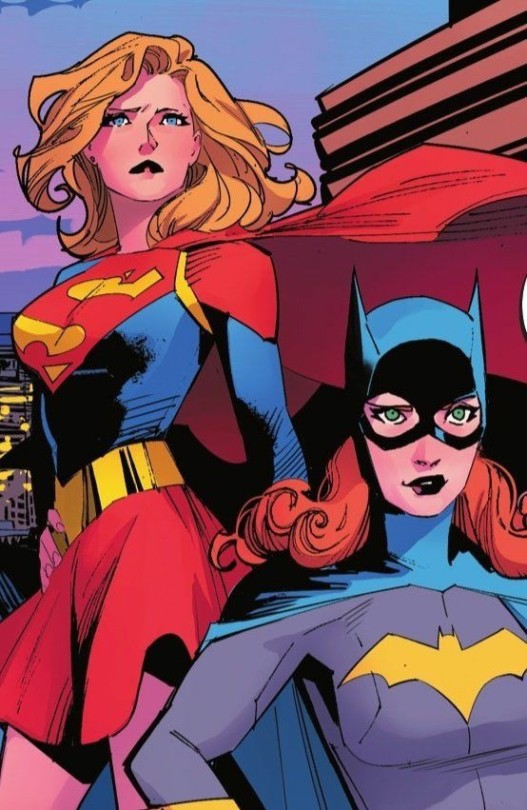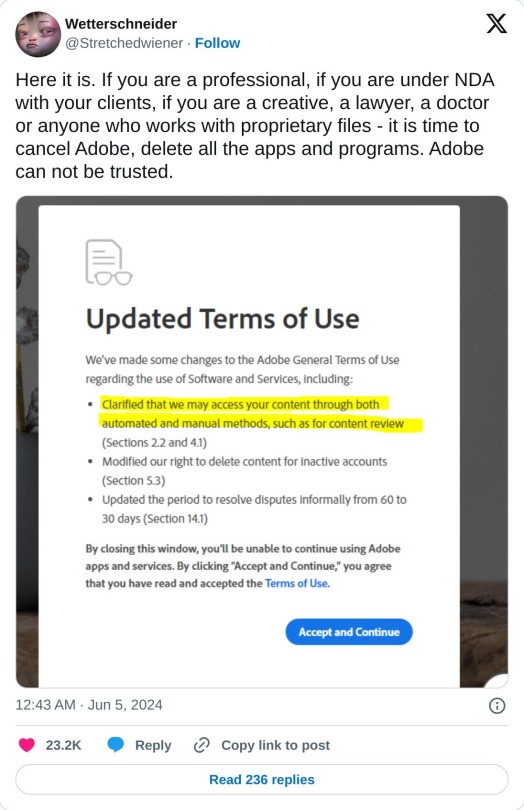
26yo, Brazilian. Back to this site after years, still getting the hang of it and feeling old. (I multiship; It may not be of your liking.) She/Her 🩷💜🩵
392 posts
Latest Posts by ighostmyself - Page 5
nothing scarier than being a fan of a fic and then becoming mutuals with the author. like hi shakespeare. big fan of your fake dating au
Shout out to everyone doing the hard yet necessary work of posting about fictional characters kissing online.
the first rule of writing is that there are no rules. the second rule is to save your work every 5 minutes because technology is a fickle god.
there's a really funny 3d printing controversy going on btw.
if you don't know, there's a very popular 3d printing model out there called "benchy". this is used for benchmarking your 3d printer because it's a difficult print and will help test it out.

this is so widely used that people make their own little versions of it, remixing the 3d model to make benchy look cooler and stuff. however, a new company owns the benchy license. they are sending copyright takedowns to all those who wrongfully uploaded the benchy model.
of course, this is pissing off the 3d printing community greatly. everyone loved benchy and have used it for years. so someone on reddit decided to make a new model that is designed as a 3d printing stress test. one that works a lot like benchy, and people are freely able to edit it as they please. you know what they called it?

boaty.
time loop fans when the loop slightly changes
time loop fans when the loop changes slightly
ok but give me one good reason why you wouldn’t date Kermit the frog besides that he is a puppet and a frog
I love the fix-its. I love the AUs. I love the missing moments. I love the canon compliants. I love the canon divergents. I love the drabbles. I love the song-fics. I love the crack fics. I love the smut fics. I love the crossovers.
On sensitivity readers, weakness, and staying alive.
The other day I was part of a Twitter conversation begun by a fellow-author on the subject of sensitivity readers, in which he said that no serious author would use sensitivity readers, and spoke of work being “sanitized”. The conversation devolved, as it often does on Twitter, but it got me thinking. It must have got someone else thinking too, because a journalist from the Sunday Times got in touch with me the next day, and asked me to share my ideas on the subject. Because I have no control over how my words are used in the Press, or in what context they might appear, here’s more or less what I told her.
I think a lot of people (some of them authors, most of them not) misunderstand the role of a sensitivity reader. That’s probably mostly because they’ve never used one, and are misled by the word “sensitivity”, which, in a world of toxic masculinity, is often mistaken for weakness. To these people, hiring someone to check one’s work for sensitivity purposes implies a surrendering of control, a shift in the balance of power.
In some ways, I can empathize. Most authors feel a tremendous sense of attachment to their work. Giving it to someone else for comment is often stressful. And yet we do: we hand over our manuscripts to specialists in grammar, spelling or plot construction. We allow them to comment. We take their advice. We call these people editors and copy-editors, and they are a good and necessary part of the process of being an author. Their job is to make an author’s work as accurate and well-polished as possible.
When writing non-fiction, authors sometimes use fact-checkers at the editorial stage, to make sure that no embarrassing factual mistakes make it into print. This fact-checking is a normal part of the writing process. We owe it to our readers to be as accurate as possible. No-one wants to look as if they don’t know what they’re talking about.
That’s why now, increasingly, when writing about the lives and experiences of others, we sometimes use readers with different specialities. That’s because, however great our imagination, however well-travelled we may be and however many books we have read, there will always be gaps in our knowledge of the way other people live, or feel, or experience the world. Without the input of those with first-hand knowledge, there’s always a danger we will slip up. That’s why crime writers often consult detectives when researching their detective fiction, or someone writing a hospital drama might find it useful to talk to a surgeon, or a nurse, or to someone with the medical condition they are planning to use in their narrative. That’s why someone writing about divorce, or disability, or being adopted, or being trans, or being homeless, or being a sex worker, or being of a different ethnicity, or of a different culture – might find it useful to take the advice of someone with more experience.
There are a number of ways to do this. One of my favourites is The Human Library, which allows subscribers to talk to all kinds of people and ask them questions about their lives (Check them out at https://humanlibrary.org/). The other possibility is to hire a specialist sensitivity reader to go through your manuscript and check it. Both can be a valuable resource, and I doubt many authors would believe that their writing is sanitized, or diluted, or diminished by using these resources.
And yet, the concept of the sensitivity readers – which is basically another version of the specialist editor and fact-checker – continues to cause outrage and panic among those who see their use as political correctness gone mad, or unacceptable wokery, or bowdlerization, or censorship. The Press hasn’t helped. Outrage sells copies, and therefore it isn’t in the interest of the national media to point out the truth behind the ire.
Let’s look at the facts.
First, it isn’t obligatory to use a sensitivity reader. It’s a choice. I’ve used several, both officially and unofficially, for many different reasons, just as I’ve always tried to speak to people with experience when writing characters with disabilities, or from different cultures or ethnic groups. I know that my publisher already sends my work to readers of different ages and from different backgrounds, and I always run my writing past my son, who often has insights that I lack.
Sensitivity reading is a specialist editorial service. It isn’t a political group, or the woke brigade, or an attempt to overthrow the status quo. It’s simply a writing resource; a means of reaching the widest possible audience by avoiding inaccuracy, clumsiness, or the kind of stereotyping that can alienate or pull the reader out of the story.
Sensitivity readers don’t go around crossing out sections of an author’s work and writing RACIST!!! in the margin. Usually, it’s more on the lines of pointing out details the author might have missed, or failed to consider: avoiding misinformation; suggesting authentic details that only a representative of a particular group would know.
Authors can always refuse advice. That’s their prerogative. If they do, however, and once their book is published, they receive criticism or ridicule because their book was insufficiently researched, or inauthentic, or was perceived as perpetuating harmful or outdated stereotypes, then they need to face and deal with the consequences. With power comes responsibility. We can’t assume one, and ignore the other,
Being more aware of the experiences of others doesn’t mean we have to stop writing problematic characters. Sensitivity reading isn’t about policing bad behaviour in books. It’s perfectly possible to write a thoroughly unpleasant character without suggesting that you’re condoning their behaviour. Sensitivity is about being more authentic, not less.
People noticed bigotry and racism in the past, too. Some people feel that books published a hundred years ago are somehow more pure, or more free, or more representative of the author’s vision than books published now. You often hear people say things like: “If Dickens were around today, he wouldn’t get published.”
But Dickens is still published. We still get to read Oliver Twist, in spite of its anti-Semitism. And those who believe that Dickens’ anti-Semitism was accepted as normal by his contemporaries probably don’t know that not only was he criticized by his peers for his depiction of Fagin, he actually went back and changed the text, removing over 200 references, after receiving criticism by a Jewish reader. And no, it wasn’t “normal” to be anti-Semitic in those days: Wilkie Collins, whose work was as popular as Dickens’ own, managed to write a range of Jewish characters without relying on harmful and inaccurate stereotypes.
But it isn’t automatic that a book will survive its author. Books all have shelf lives, just as we do, and Dickens’ work has survived in spite of his anti-Semitism, not because of it. The work of many others has not. Books are for readers, and if an author loses touch with their readers - either by clinging to outdated tropes, or using outdated vocabulary, or having an outdated style – then their books will cease to be published, and they will be forgotten. It happens all the time. What one generation loves and admires may be rejected by the next. And the language is always changing. Nowadays, it’s hard to read some books that were popular 100 years ago. Styles have changed, sometimes too much for the reader to tolerate.
Recently, someone on tumblr asked about my use of the word “gypsy” in Chocolat, and whether I meant to have it changed in later editions. (River-gypsies is the term I use in connection with Roux and the river people, who are portrayed in a positive light, although they are often victims of prejudice.) It was an interesting question, and I gave it a lot of thought. When I wrote the book 25 years ago, the word “gypsy” was widely used by the travelling community, and as far as I knew, wasn’t considered offensive. Nowadays, there’s a tendency to regard it as a slur. That’s why I stopped using it in my later Chocolat books. No-one told me to. It was my choice. I don’t feel as if I’ve lost any of my artistic integrity by taking into account the fact that a word has a different resonance now. On the other hand, I don’t feel that at this stage I need to go back and edit the book I wrote. That’s because Chocolat is a moment in time. It uses the language of the moment. Let it stand for as long as it can.
But I don’t have to stay in one place. I can move on. I can change. Change is how we show the world that we are still alive. That we are still able to feel, and to learn, and to be aware of others. That’s what “sensitive” means, after all. And it is nothing like weakness. Living, changing, learning – that’s hard. Playing dead is easy.
The best compliments and insults are both just describing the person. Just describe whatever you can clearly observe about them. The distinction of whether that's an insult or a compliment is whether you're saying it with a pleasant tone, or if you're saying that like it's a bad thing.
Children, who make their observations in an utterly deadpan voice as neutral remarks, are capable of obliviously roasting people because they haven't noticed this.

I think there’s value in exploring different dynamics for the same pairing!! If I want to make them romantic sometimes and platonic other times that is fine and good !!!
It is inherently fun and sexy to say statements that swap the traditional genders of pronouns and terms mid-statement, such as: "I'm going to make him my wife" "She's my boyfriend" "Who says a guy can't be a pretty princess?" "That girl's the coolest dude I've ever met" "She's a madman who has to be stopped" "It's not his fault he's a material girl" Gender is a set of watercolors and the prettiest shades come from mixing the paints together.

feels like fake news



A collection of spider suit redesigns I've done over the course *insert however many months I've been fixated on Spiderman in Gotham fics*
Some (most) are just me playing around with the asthetics and some (a total count of 1.5) were made with more utilitarian purpose in mind, like actual armor to protect from pointy-stabbys and better insulation for cooler months
marvel universe dashboard simulator: spideytorch ship war edition

🤟 spideyparktorchtruther Follow

🕷️ spideyslut22468
god i'm so fucking tired of hearing about johnny fucking storm's love life. it's always spideytorch this, stormparker that, and now i have to deal with this new monstrosity of a ship? have we considered maybe leaving them alone? these are real ass people, why are you even shipping them anyways? go find some anime twinks to thirst over
4,235 notes

🧟 avgnwyrkr Follow
so anyways i still haven't stopped thinking about that one tiktok where the person saw spider-man chilling eating a hot dog one day and went up to him to ask him what he thought about peter parker and it was so obvious the person was trying to start some drama or whatever but instead spidey just apparently went on for like ten minutes about how awesome peter parker is and how good he is at photography and how smart he is and how they've been friends for like ten years
guys, what if we've been wrong all along? what if spidey really isn't in love with johnny? what if he's in love with peter instead?
😏 shutterbugsupremacy Follow
that's what i've been saying!! i mean guys? peter parker is LITERALLY the only photographer that spidey ever allows to get proper photos of him? he's been taking photos of spidey since he was in high school! he literally put out a photobook that was entirely pictures of spider-man.
🕷️ spideyslut22468
y'all are reaching so hard i'm surprised you haven't pulled a muscle. if parker was really in love with spidey would he have sold his pictures to a newspaper that does nothing but slander spider-man's good name? from what i've heard, jjj pays parker pretty well for his spider-man photos. he's not taking pictures of spidey out of love or anything, it's all just for money. same with the book. he's a sellout.
😏 shutterbugsupremacy Follow
hey man, we all gotta eat somehow, and spidey has said in the past that he doesn't care about parker working for the bugle. also, see above about the video where spidey talks about how awesome parker is. maybe you need to cool your jets, yeah?
🕷️ spideyslut22468
spider-man has been friends with johnny storm literally since the fantastic four came onto the superhero scene, obviously he's gonna play nice when asked about his best friend's long-term boyfriend regardless of how he actually feels about parker. y'all are just looking for signs where there aren't any.
345 notes

🥰 stormparkerownsmysoul

look, i know that we've all had our differences in the past, but let us not think about what sets us apart, but rather what brings us all together.
16,345 notes

❎ superheroshipbrackets
310 notes

❤️🔥 spideytorchendgame Follow
me talking to anyone that will listen about my theory that peter parker is just a beard for johnny storm to help keep his actual relationship with spider-man a secret

❤️🔥 spideytorchendgame Follow
like guys just hear me out okay? spider-man obviously wouldn't want his real identity to be well known to the public, and publicly dating johnny would put him at constant risk of being found out. so that's why they have johnny fake date peter parker! he's the perfect candidate! i mean, we all know he has ties to, like, a ridiculous number of superheroes. he's worked for both reed richards and tony stark, and people have snapped pics of him hanging out with captain america and deadpool. he's even been spotted with daredevil and daredevil hates everyone! so him dating johnny wouldn't really put him at any more danger of being targeted by villains than he was already in. and what's in it for peter? i mean, he gets to live in the baxter building (he probably has his own secret apartment and doesn't actually live with johnny) and probably gets a bunch of expensive gifts and stuff to compensate for all the shit he has to put up with for being johnny's partner.
2,463 notes
Prophet
Tony Stark - Prometheus

Vision of Pepper screaming and the Arc Reactor

"I dreamt we had a kid"

Bruce's bar


"That's the Endgame"


Hulk's Glorious Purpose



Inevitable


Broken shield


Home



...


































